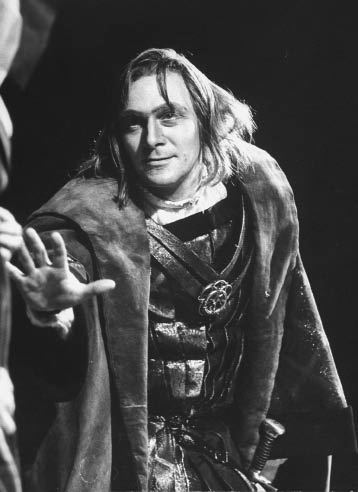To most people Christopher Plummer means Captain von Trapp in The Sound of Music. Plummer would not be in the least ashamed by this. A year or so ago he found himself forced to watch the film at a children’s Easter party:
The more I watched, the more I realised what a terrific movie it is. The very best of its genre — warm, touching, joyous and absolutely timeless. Here was I, cynical old sod that I am, being totally seduced by the damn thing — and, what’s more, I felt a sudden surge of pride that I’d been a part of it.
It is an odd book, though. The production is calamitous: some of the illustrations are blurred to the point of mystery; unforgivably, there is no index; if an editor has been anywhere near the text there is no evidence of his existence. Trivial inaccuracies abound. Most pages have a phrase or two in French, put in for no apparent reason except, presumably, to demonstrate the author’s mastery of that language.
Initially, at least, Plummer writes with a relentless showbiz jollity that sets the reader’s teeth on edge. Names are dropped in what becomes a torrential downpour and much of the author’s life seems to have been spent in a drunken stupor, roaring with laughter at bad jokes. ‘We had all consumed an enormous amount of hooch and everything started to sound hysterically amusing’ appears on a thrill-packed page in which the author contrives to include the Dukes of St Albans and Devonshire, Princess Margaret, Patrick Lichfield and Rex Harrison. The previous page boasted Prince Rainier, David Niven, Sean Connery and Trevor Howard ‘and of course beaucoup des jeunes filles mal gardés [sic]’.
It is worth persisting, though. Once he has got the showbizzery out of the way, Plummer turns out to have interesting things to say about his profession, and to say them lucidly and intelligently. One learns, for instance, that Richard III is the most exhausting of Shakespearian roles because
the Bard (who wrote the play when he was quite young) never gave his ‘star’ the necessary ‘rests’ throughout the evening. All the relentless vocal pyrotechnics occur in the first quarter of the piece; then Richard has a very short break or two until the end, when the pyrotechnics reappear. Not satisfied, the author makes poor Richard fight an unconscionably long and fearsome duel before he finally and mercifully expires.
This is the sort of technical detail which would be unlikely to occur to the average theatregoer but which enhances one’s appreciation of the role. When he played Antony at the age of 37, Plummer says, he had no trouble with the ‘wenching, drinking and gourmandising’ but failed to get
the flashes of the once great conqueror, legendary leader of men, who ‘with my sword / Quartered the world, and o’er green Neptune’s back / With ships made cities.’
Plummer is commendably objective about his own performances. He was not very good as Macbeth, he admits:
I spoke the verse well, because that I can do, but in my desire to stress the Thane’s ‘vaulting ambition’ I became far too neurotic to be a convincing leader, and that very ambition Macbeth talks about in my case literally ‘o’er leapt itself and fell on the other’.
Equally, when he feels he has excelled, he has no hesitation in saying so. It would have added something if from time to time he had quoted the judgments of the critics. An autobiography must obviously be subjective, but occasional views from the outside give a perspective which is lacking here.
He is in general generous about his fellow actors, both over their performances and their personalities; his description of Olivier’s Othello is an intelligent and sensitive analysis of that most controversial interpretation. Was it, he wonders, a great performance, even if short in pathos?
The answer is yes, I think so. It was not the Moor of Venice, it was closer to John Buchan’s Laputa or Emperor Jones, perhaps, but whatever it was, it was overwhelming — and probably the very last we will see of that timeless larger-than-life kind of performing that belonged to an unidentifiable golden age when the actor reigned supreme.
One of the few contemporaries he did not like was Alec Guinness. Plummer found him
remote and exceedingly chilly. There was something sad and troubled about this tense man — as if he had a secret he didn’t wish to share.
‘Sad and troubled’ are certainly not words that can be applied to Plummer. The impression left by this book is one of enormous jollity and zest for life. He may have been from time to time exhausting to know — certainly he can be exhausting to read — but the world has been enriched by his existence.






Comments